Fighting for Two: COVID-19 and Pregnancy
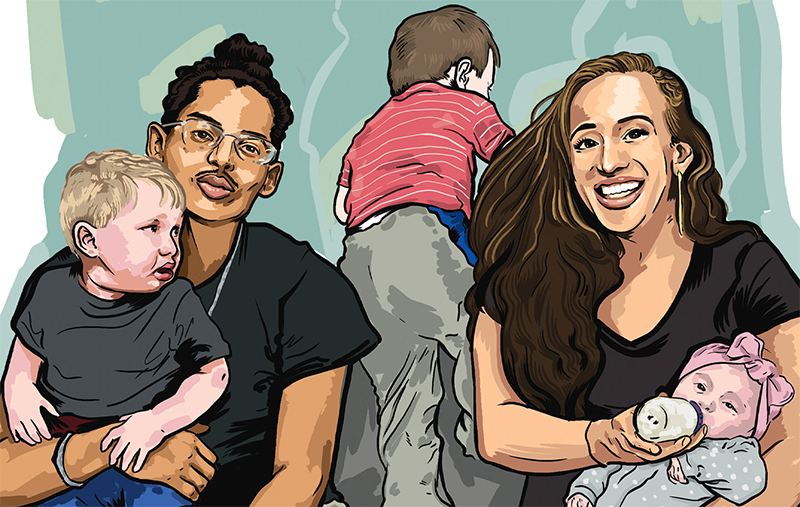
October 27, 2020
Typically, we photograph every patient appearing in HealthU. Because this story was planned during the surge of COVID-19, that contact would have been too risky. Instead, our team took a creative approach and replaced photo shoots with illustrated portraits of patients.
First, she couldn’t smell the contents of her toddler’s diaper. Then she couldn’t smell a powerful disinfectant. By the time Donna Molina sniffed a bottle of bleach and couldn’t detect its caustic odor, the stunned woman knew: She had COVID-19.
It was the end of March 2020, and the East Rutherford, New Jersey, resident was due to give birth about two months later to her fourth child. But days of fever and difficulty breathing, which she mistakenly thought was a sinus infection, finally made sense when Donna’s sense of smell disappeared.
“I was so scared. It felt like I was being stabbed in the chest,” says Donna, 32, who then isolated herself in her bedroom for several days in hopes of riding out the illness. “When I got panicky because I couldn’t take in a whole breath anymore, my husband called an ambulance.”
Suffering from pneumonia, Donna was rushed to Hackensack University Medical Center, where doctors immediately tested her for the novel coronavirus and agreed on a treatment approach when her test came back positive.
Delirious and feverish, Donna’s next hours are a blur to her today. Her baby girl, Harley Sue Mitchell, was delivered by C-section weighing only 3 pounds, 6 ounces, and brought to the neonatal intensive care unit (NICU) at Joseph M. Sanzari Children’s Hospital. Donna was moved to the intensive care unit (ICU), where doctors placed her into a medically induced coma and connected her to a ventilator.
“The last thing I remember was calling my husband as I was wheeled into the operating room for the C-section and telling him I’d call him afterward,” Donna recalls. “Eleven days later, I finally called him. The reality is still so surreal.”
Innovative Treatment Approaches
More than 40 pregnant women received treatment for COVID-19 from Hackensack clinicians in the first few months of the outbreak, but Donna was one of only eight requiring intensive care. With no standard therapy for the novel coronavirus, doctors are left to assess each patient’s individual symptoms and needs before deciding on a treatment course.
For critically ill women in later stages of pregnancy, however, treating a virus-stricken patient means delivering their baby early to reduce stress on their lungs, says Abdulla Al-Khan, M.D., vice chairman and director of Maternal-Fetal Medicine and Surgery and co-director of the Fetal Care Program at Hackensack.
Proning, a technique that flips COVID-19 patients on their stomachs to enable their lungs to expand more efficiently, isn’t an option for a heavily pregnant woman because of her rounded abdomen, Dr. Al-Khan explains. “Obviously, a pregnant belly impedes and hinders respiratory function,” he says. “If a mother has a viable baby and needs a respirator, our approach is to get the baby out. The right thing to do for Donna was give her the most aggressive therapy, so she could be with her children again.”
Another critical treatment option for pregnant women—although Donna was able to recover without having it—is convalescent plasma, and Hackensack Meridian Health stands particularly poised to maximize this emerging therapy for all COVID-19 patients. Hackensack spearheaded high-profile research to collect plasma from recovered COVID-19 patients with especially high levels of antibodies against the virus and test this antibody plasma on patients in the thick of battling the illness, says the study’s chief investigator, Michele Donato, M.D., chief of stem cell transplantation and cellular immunotherapy at John Theurer Cancer Center.
Joyful Homecoming
After several failed attempts to wean Donna off the respirator, she was finally able to breathe on her own. But she didn’t remember a key milestone when she awoke: having a baby. Fortunately, Harley Sue was gaining weight and thriving since her premature arrival. It took Donna only three more days—fueled by a drive for self-sufficiency—to recover enough physically and mentally to go home.
Video chats with her newborn daughter sufficed until Donna was cleared several weeks later, after two negative COVID-19 tests, to finally meet and hold her. But considering Donna’s brush with death and ongoing fears surrounding the pandemic, she didn’t find the waiting difficult.
A healthy Harley Sue was able to come home to her parents and three older brothers about six weeks after her birth, weighing a little more than 5 pounds. Like all infants born at Hackensack to mothers who’d battled COVID-19, she never contracted the virus.
“I feel so lucky and blessed to have her home,” Donna says. “The staff at Hackensack were amazing. I’m just so grateful they didn’t give up on me. They fought for me to be alive, and they took care of my daughter so well.”
With her recovery nearly complete, and happily immersed in caring for her children—three of whom are ages 2 and younger—Donna considers her COVID-19 experience a wake-up call to gain important perspective. She now views everyday chaos with fresh eyes.
“When I called my husband after waking up in the hospital and heard the kids screaming in the background, those were the best sounds I could ever hear,” she recalls. “I promised myself I would never feel the same frustration with it. I’m just enjoying my kids and every moment.”
Next Steps & Resources
- Meet your sources: Abdulla Al-Khan, M.D., and Michele Donato, M.D.
- To make an appointment with Abdulla Al-Khan, M.D., and Michele Donato, M.D., or another provider, call 800-822-8905 or visit our website
The material provided through HealthU is intended to be used as general information only and should not replace the advice of your physician. Always consult your physician for individual care.
Are Pregnant Women More at Risk for COVID-19?
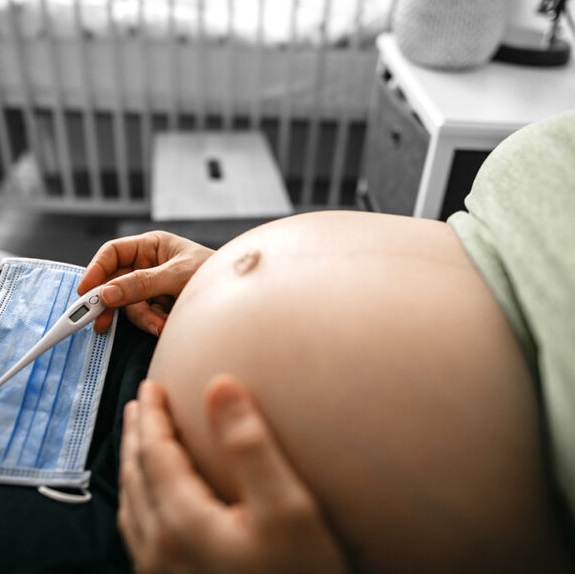
Most pregnant women who contract COVID-19 don’t end up with a dire scenario like East Rutherford, New Jersey, resident Donna Molina, whose life was saved at Hackensack University Medical Center with 10 days of ventilator treatment in April after her baby girl was delivered two months prematurely.

22-year-old Makes Incredible Recovery from Both COVID-19 and Stroke
As a 22-year-old man, Danny Dominguez isn’t the typical stroke patient. The first time he experienced shortness of breath and headache...
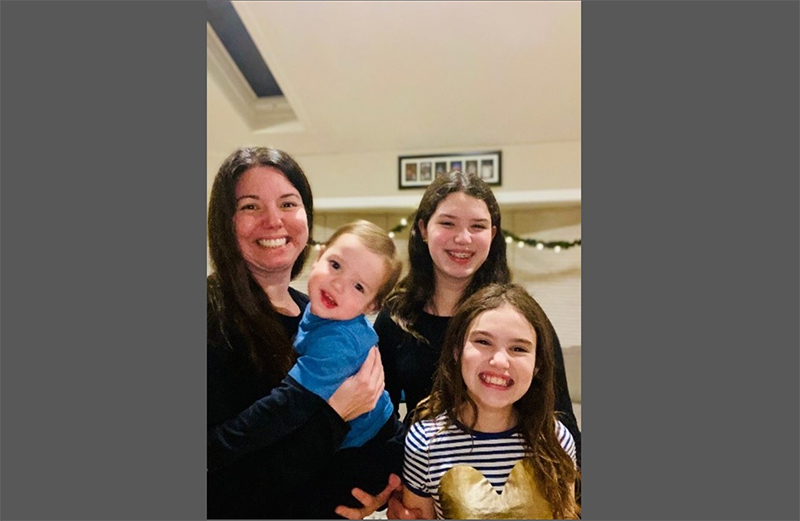
Taking My Kids to the ER During COVID
Danielle had to take each of her kids to the emergency room during the height of the COVID-19 pandemic.
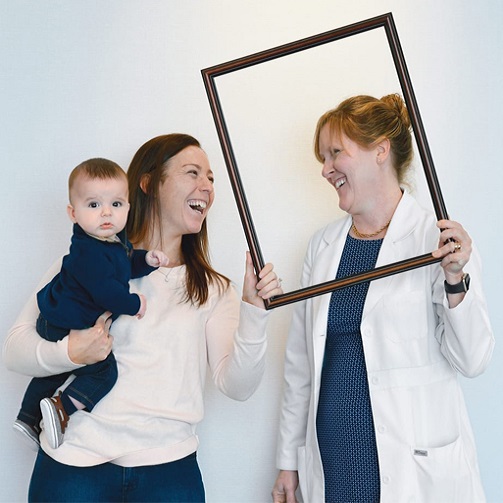
A Head Start at Breastfeeding
The transition from expectant mother to mother of a newborn can be extremely challenging, so it helps to have knowledgeable hospital staff on hand for support.
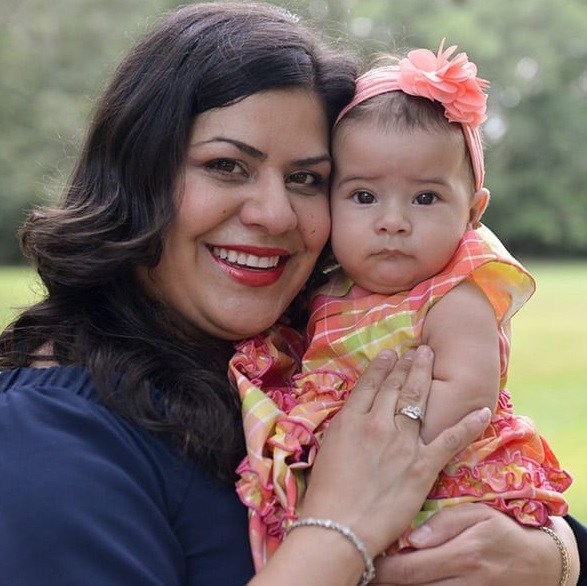
Helping Her Grow
When Ariana was a newborn, her mom, Nancy, noticed that her head looked long and narrow.